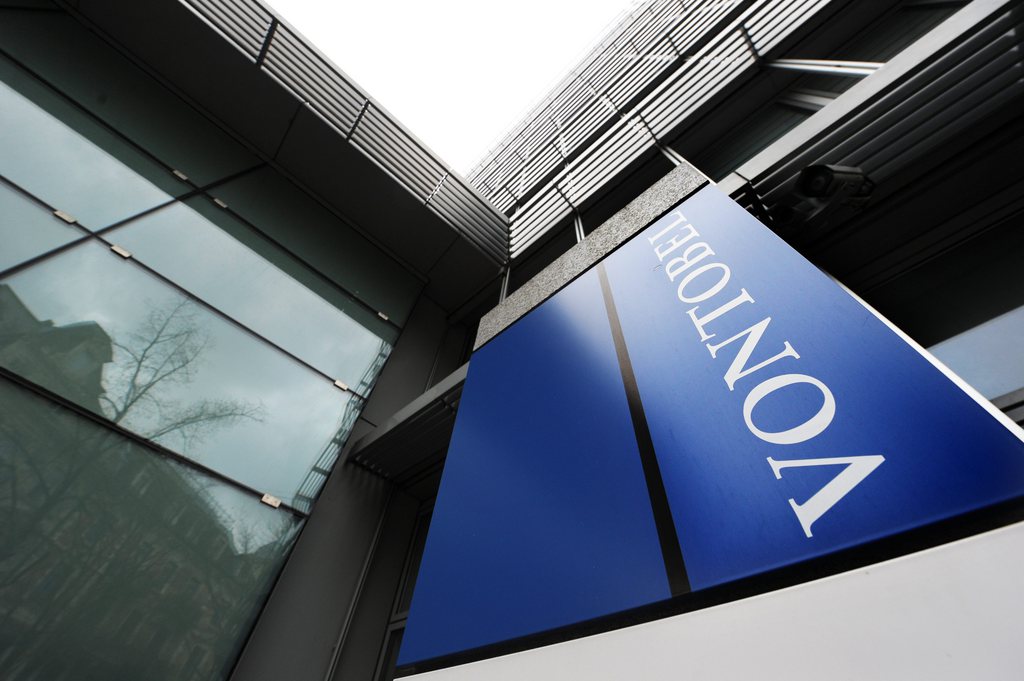Julius Baer boss says big is not beautiful

Being a banker may have lost its appeal in recent years, but Boris Collardi, the deal-hungry chief executive of Switzerland’s largest private bank Julius Baer, wears the banker badge with pride.
“I had love at first sight with banking,” the chief executive says of his first job as an apprentice at Credit Suisse at the tender age of 19, at a time when most of his friends were putting off office hours in favour of student life and parties in Geneva.
Today the 40-year-old is young by most standards to be at the helm of one of Switzerland’s oldest institutions, which oversees $290 billion (CHF278 billion) of assets and next year celebrates its 125th birthday.
But perhaps that youth is necessary for the demands of the job: Mr Collardi says he spent 300 days on the road last year, and he typically works 14-hour days. “These are the kind of crazy schedules we have,” he says.

More
Financial Times
External linkWhen asked if the groups have held merger talks, Mr Collardi’s response is cryptic. “The first rule is, never believe what a banker tells you,” he says with a smile, before denying that formal discussions were held.
After being pressed on whether informal talks took place, the chief executive, who describes himself as a “typical Swiss”, born in a small lakeside town 20 kilometres from Geneva, adds: “Switzerland is a very small place. We all know each other and it is not uncommon that people talk.”
Succession problem
Analysts at UK bank Berenberg recently dismissed the merger rumours as having “very low probability”. Nonetheless the discussions have been a hot topic of conversation in the Swiss market.
Julius Baer
Founded 1890
Headquarters Zurich
Assets under management CHF274 billion ($290 billion)
Employees 5,557
Ownership Julius Baer Group is listed on the SIX Swiss Exchange
A wealth manager at a large Swiss bank said clients are constantly asking whether a deal is likely. An asset management executive added that Mr Collardi is widely considered the potential solution to a “huge succession problem” at Credit Suisse, which has seen Brady Dougan, its chief executive, face domestic pressure to resign after the bank agreed a $2.8 billion tax settlement with the US in July.
Mr Collardi, who took over as chief executive of Julius Baer in unexpectedly tragic circumstances after his predecessor committed suicide, said in response: “I don’t think Julius Baer nor myself are the solution to Credit Suisse’s situation today. None of our clients or employees would want us to change [our] positioning.”
“Big is not beautiful right now because the bigger you are, the more regulatory oversight you attract, the more complexity there is in your business, the more volatility you have. It just makes everything more complicated.”
Although Mr Collardi appears wary of reaching Credit Suisse’s scale, ensuring Julius Baer keeps growing is a priority for the chief executive, who masterminded the acquisition of Merrill Lynch’s international wealth operations – one of the largest private banking deals since the financial crisis – for $840 million two years ago.
Next big purchase
Despite the fact that the Merrill purchase has drawn criticism from analysts for being costly and failing to secure the level of client assets initially anticipated, Mr Collardi is looking for his next big purchase.
“There will be one of these deals every five years. Other banks will give up on wealth management, and I think we’re uniquely positioned [to take advantage of that]. We’ve shown we can do it,” he says.
He is also keen to buy out smaller competitors in the Swiss market, after the bank’s acquisition of CHF7 billion of Swiss assets from Israel’s Bank Leumi in July.
In March, meanwhile, Julius Baer more than doubled its stake in Brazilian wealth company GPS to 80%. Mr Collardi plans to forge similar agreements in selected emerging markets, targeting private banks with roughly $5 billion of assets.
“It is a positive story we’re working on,” he says. “These are not announcements of losses and people being fired and offices being closed. [There’s] always a new addition to what we do. We’re in a good spot.”
Julius Baer, however, is no stranger to negative headlines. It is one of dozens of Swiss banks to be under investigation by the US Department of Justice for allegedly helping US citizens evade taxes, and a long-awaited settlement agreement is expected later this year.
The bank also admitted in February that it had been contacted by Swiss banking watchdog FINMA in relation to the probe into possible manipulation of the foreign exchange market over the activities of two employees.
Earlier this month, meanwhile, Julius Baer issued a statement saying it would fight a $100 million claim made on behalf of the former German Democratic Republic. The claim relates to money that allegedly went missing from East Germany following the fall of the Berlin Wall through Bank Cantrade, which Julius Baer bought from UBS in 2005.
Shareholder pressure
In addition to fending off pressure from international authorities, Mr Collardi has faced a tough time from shareholders who last year rejected the company’s pay plan, which drew criticism for including uncapped bonuses. As part of efforts to placate shareholders this year, Mr Collardi’s pay was docked 12% to CHF5.9 million. But he shrugs off any pain caused by the pay cut, saying “money is by far the least [important factor]” when choosing where to work.
He adds: “At this level it can’t be painful, right? The job we’re doing is a vocation. All of us like to be paid whatever is deemed competitive in the market, but it’s not the main driver.”
Despite battling a steady stream of challenges from regulators, litigators and shareholders alike, Mr Collardi describes the past eight years as “fantastic”.
It is difficult to know whether to believe him given his joke about never trusting a banker. But he reinforces his point: “If I look back, there isn’t very much I think we would have been able to do much better. There are a number of decisions we took, right ones and wrong ones, but on balance, mainly right ones. It has been a fantastic ride.”
Boris Collardi
Born 1974
Salary 2013: CHF5.9 million ($6.7 million)
Education 1999, IMD, Lausanne; 1993, Cessouest School, Nyon
Career 1993-2006, started as an apprentice at Credit Suisse, rose through roles in Switzerland, London and Singapore to become chief operating officer for EMEA in private banking; 2006, chief operating officer, Bank Julius Baer; 2009, chief executive 2010, chief executive, Julius Baer Group
Copyright The Financial Times Limited 2014

In compliance with the JTI standards
More: SWI swissinfo.ch certified by the Journalism Trust Initiative




You can find an overview of ongoing debates with our journalists here. Please join us!
If you want to start a conversation about a topic raised in this article or want to report factual errors, email us at english@swissinfo.ch.